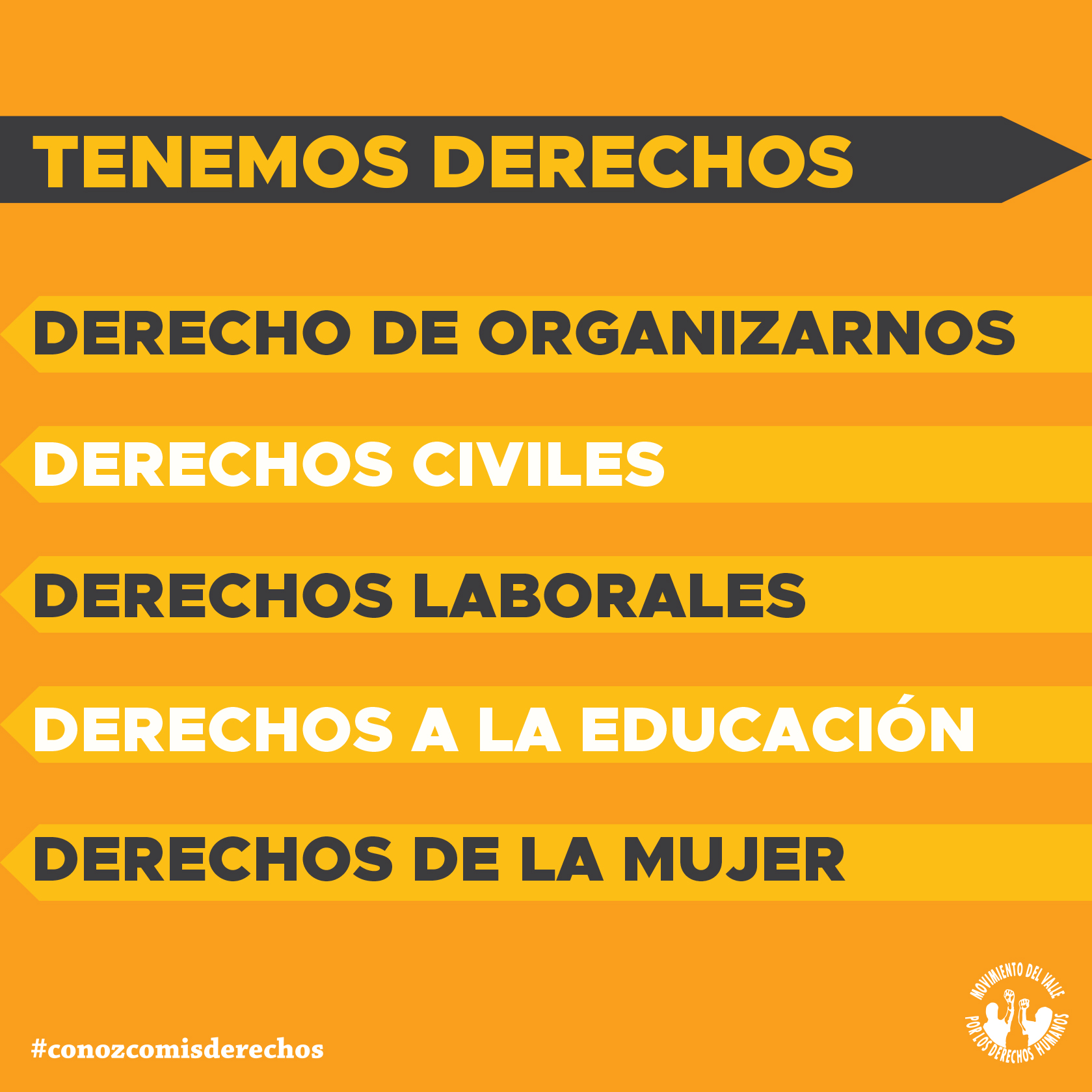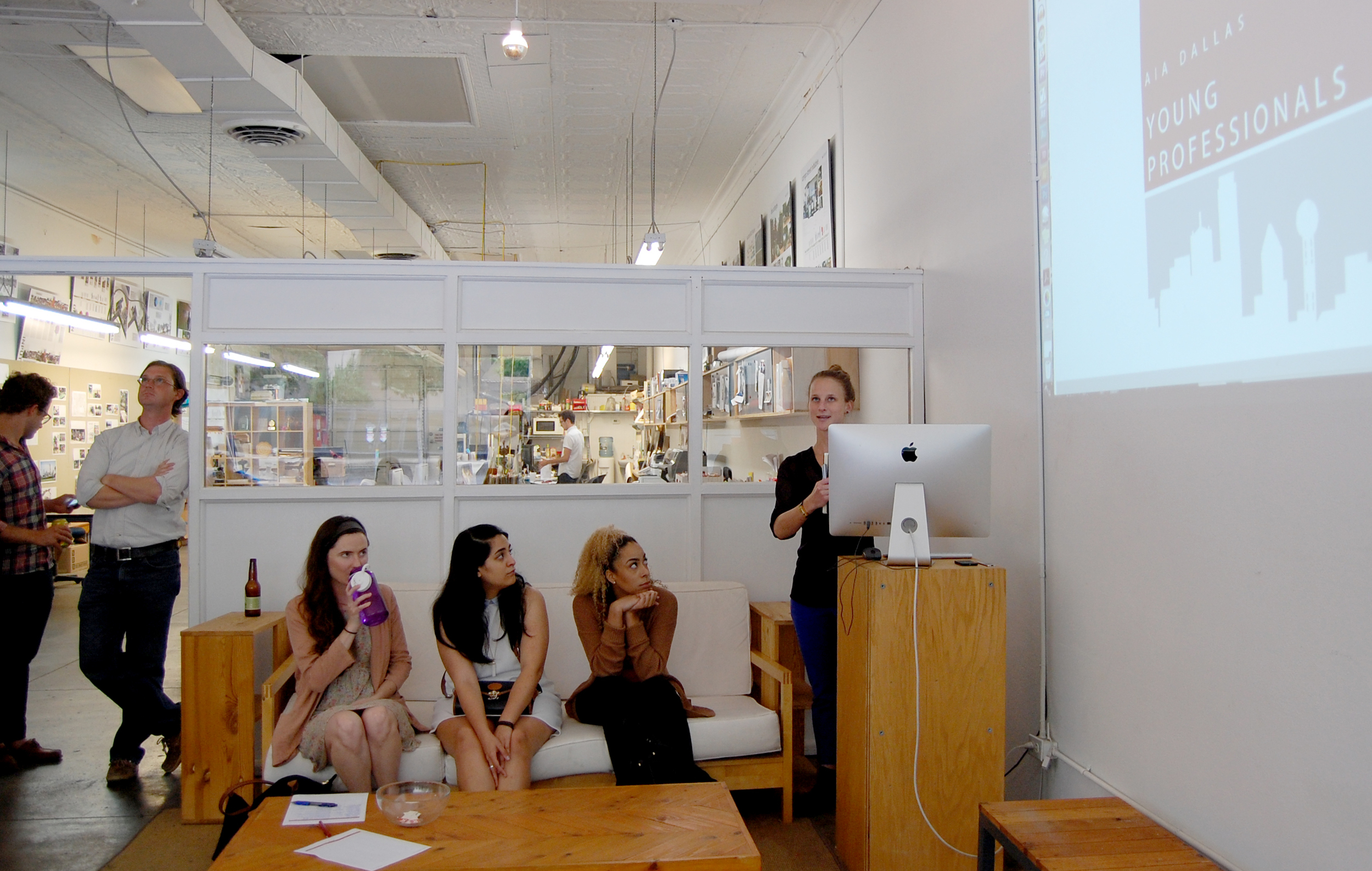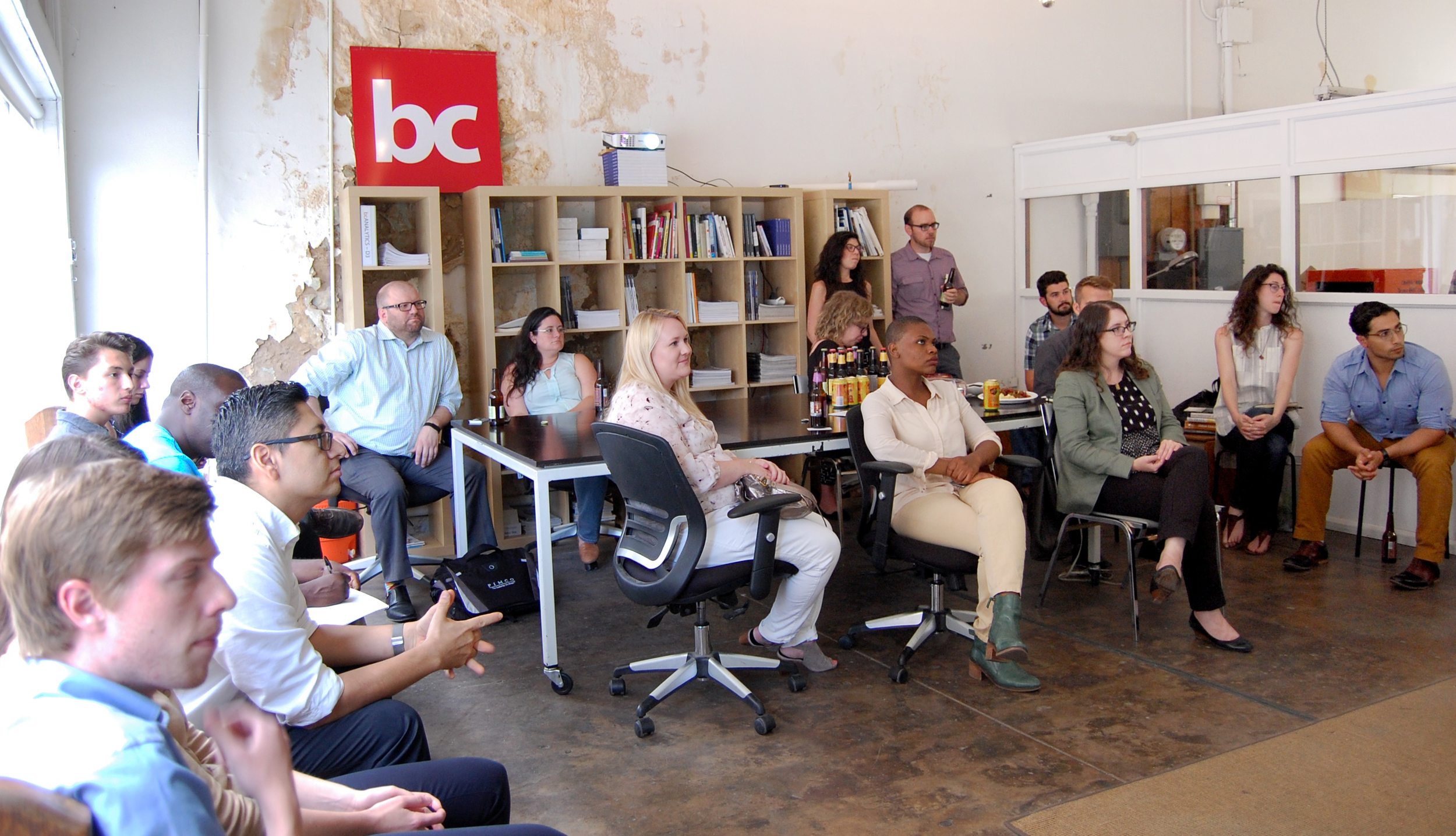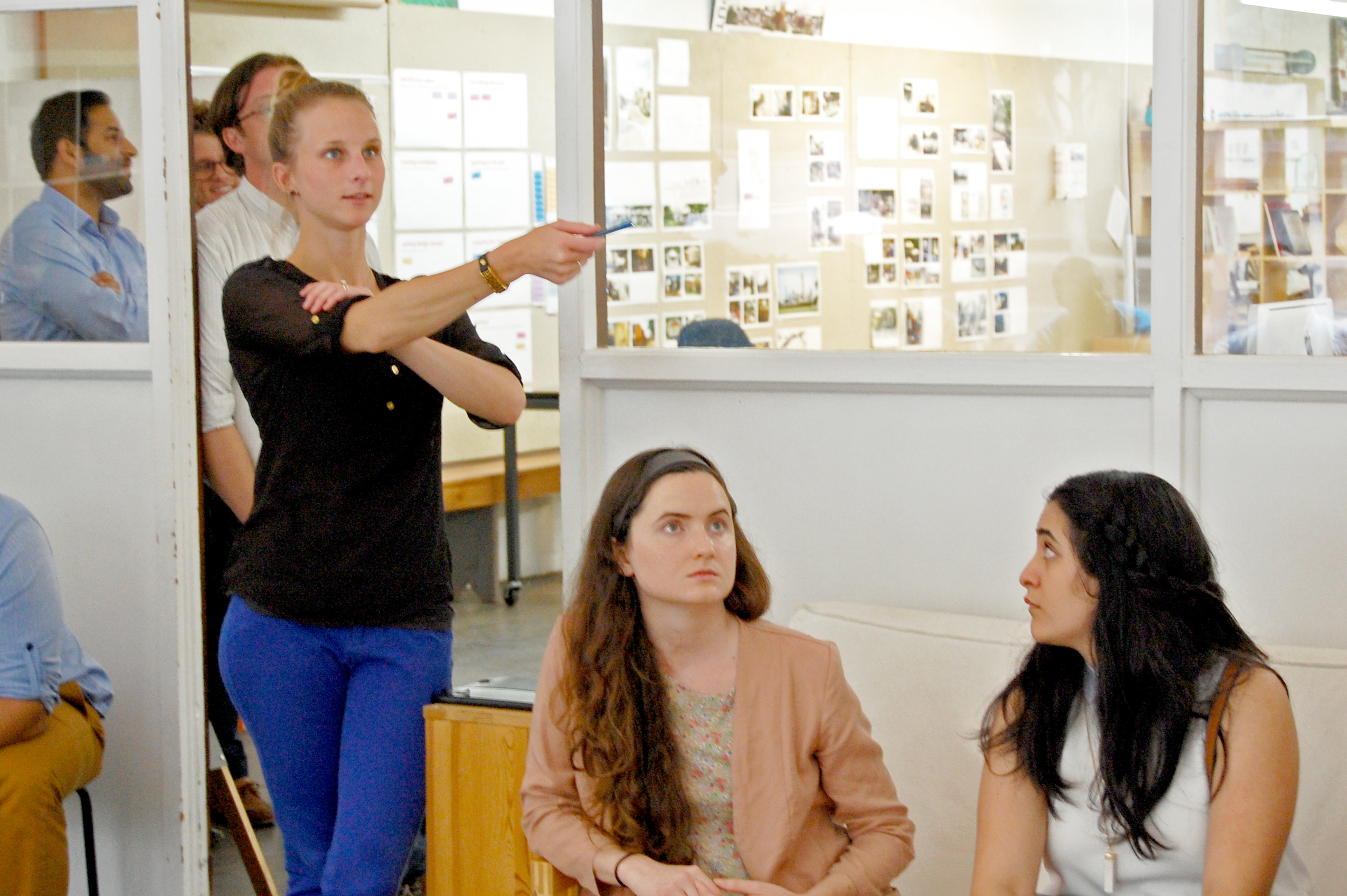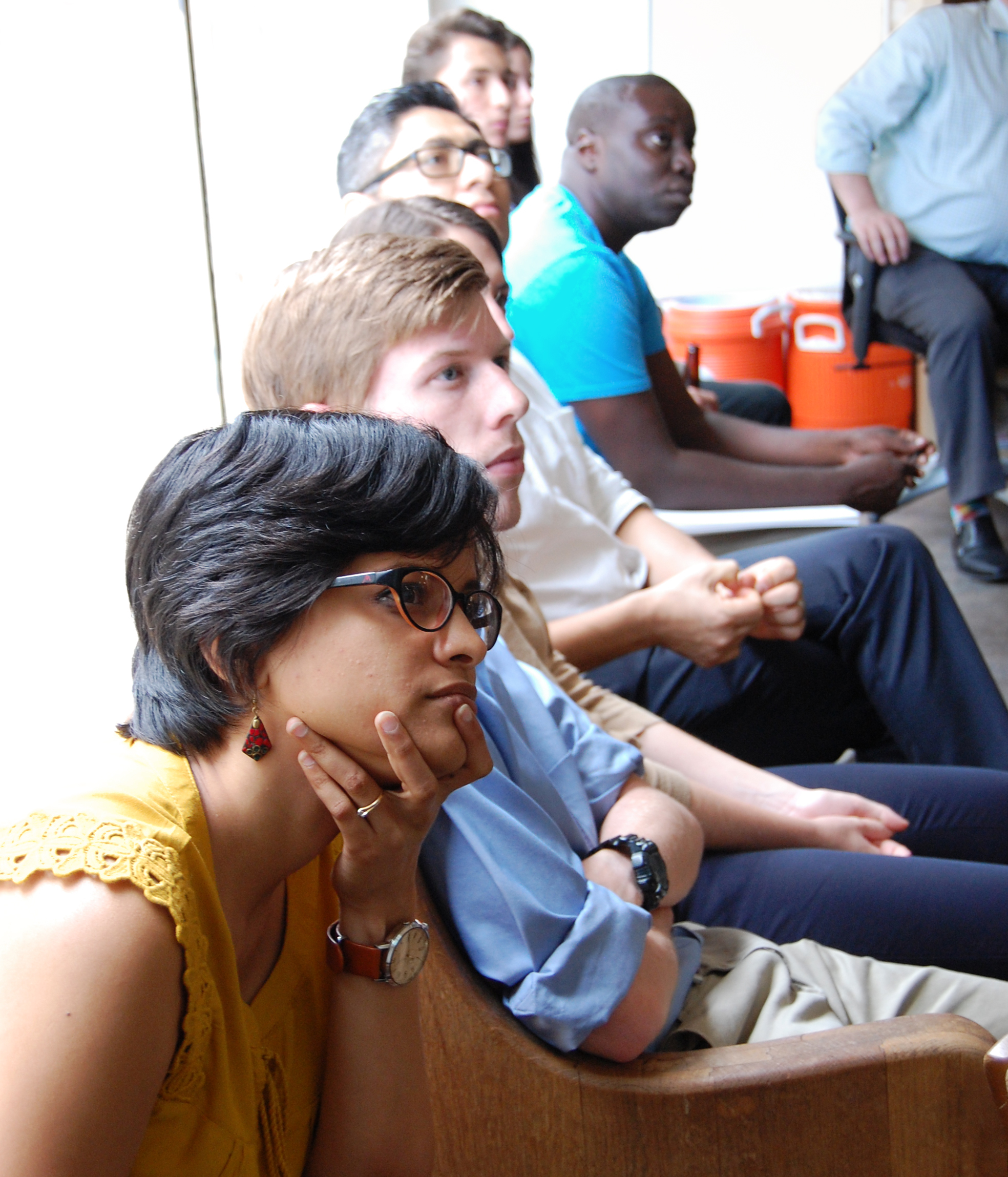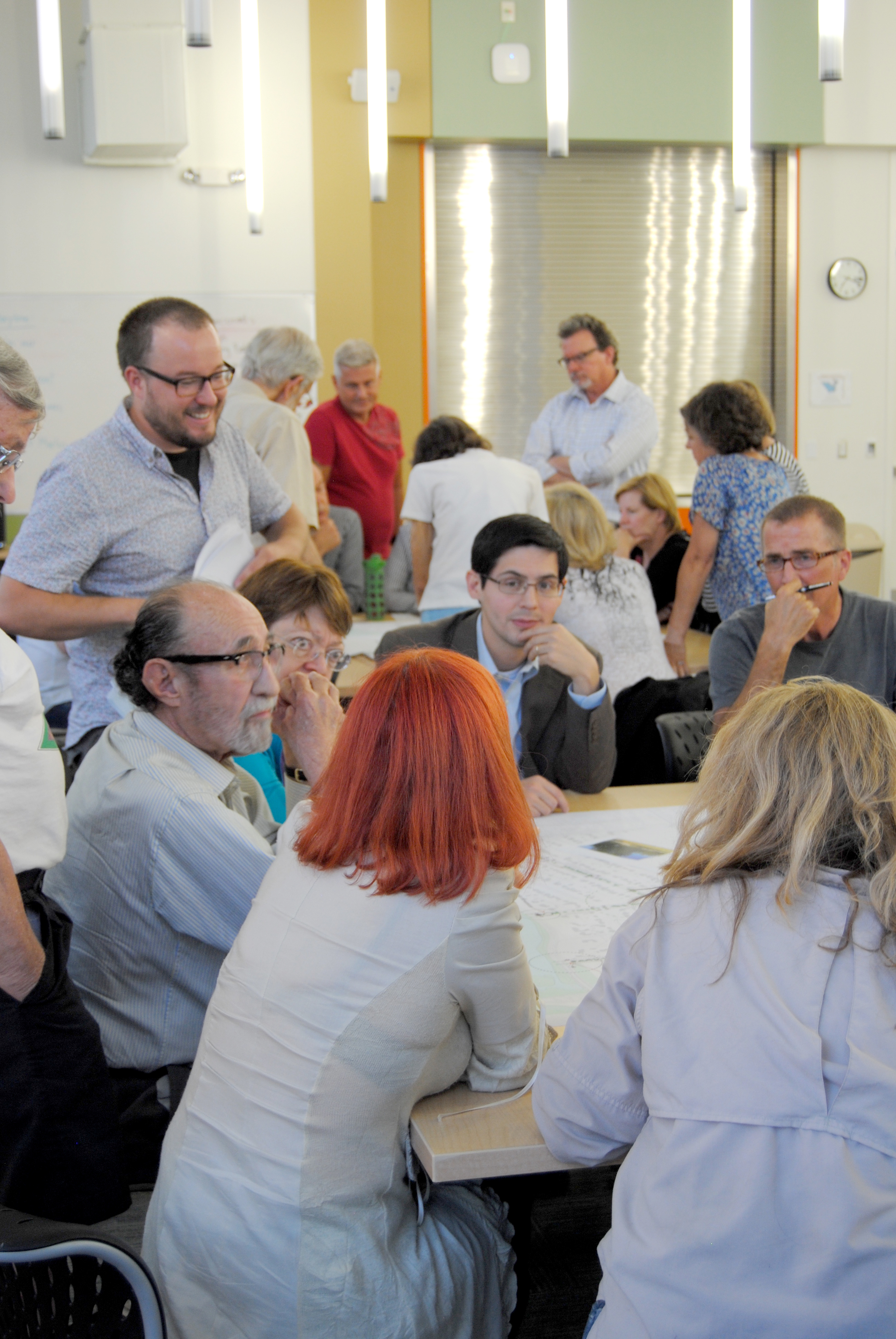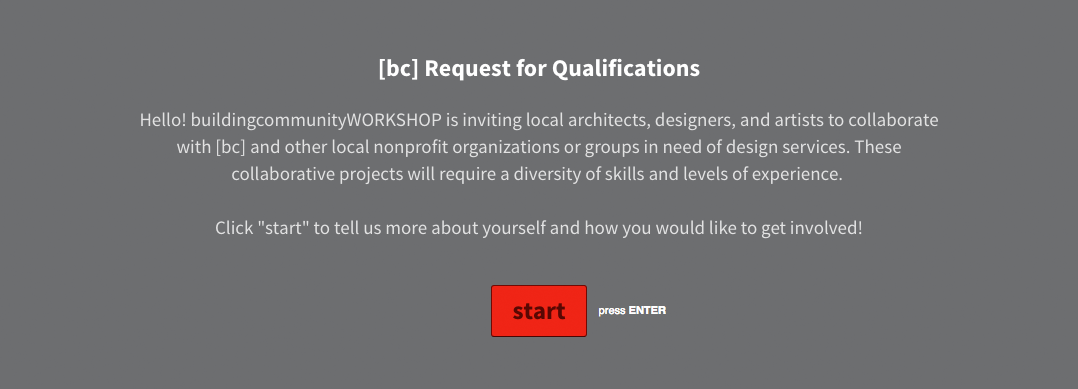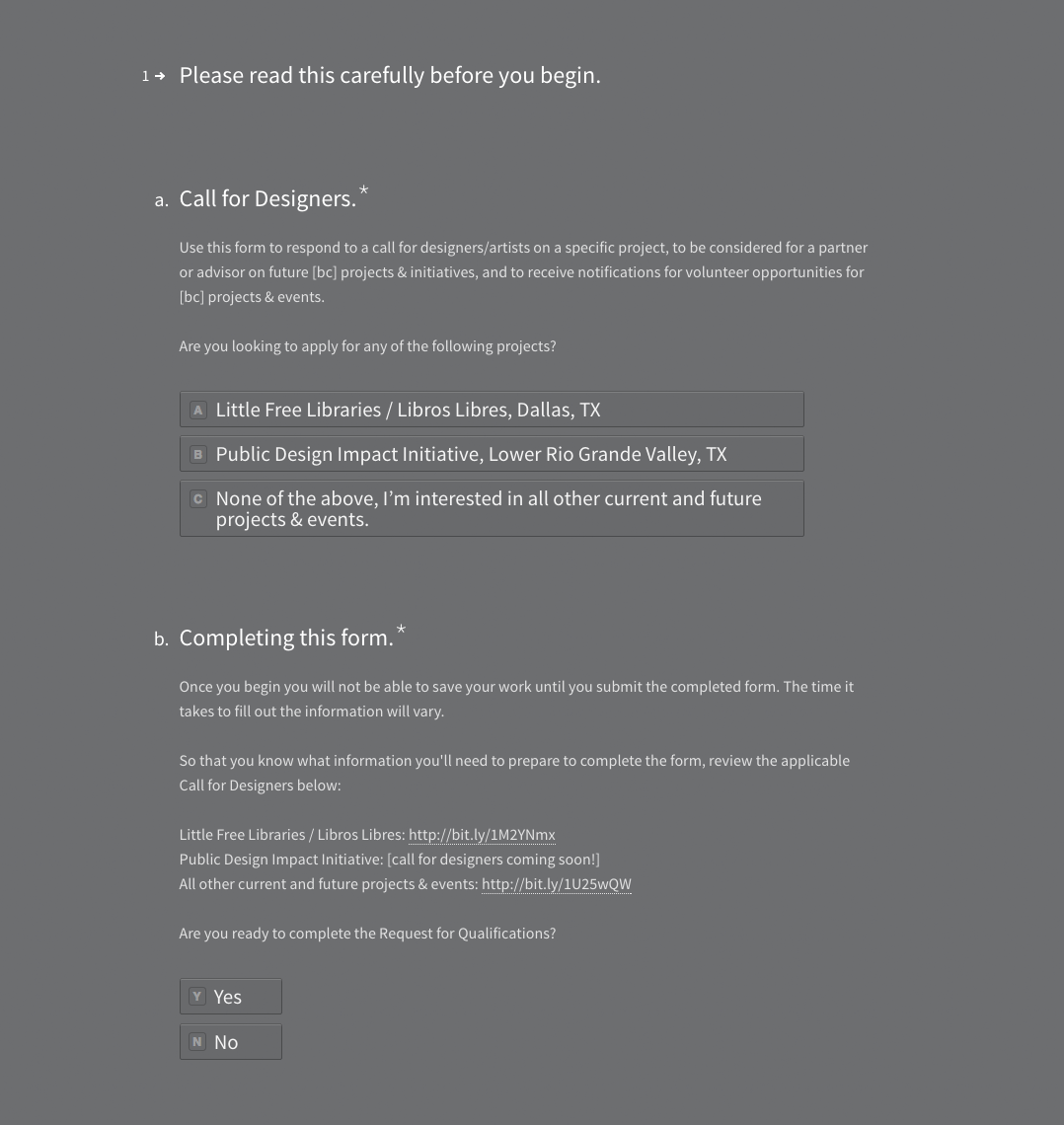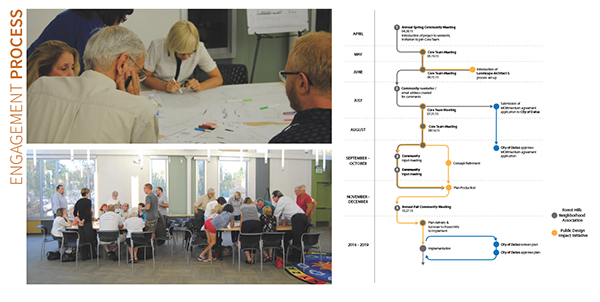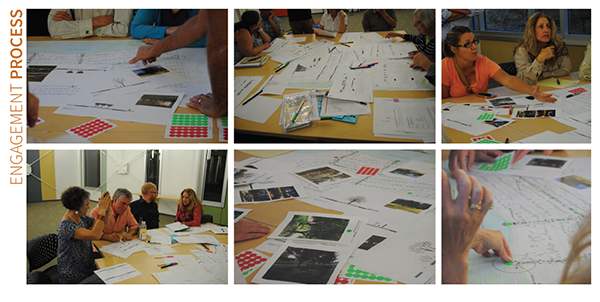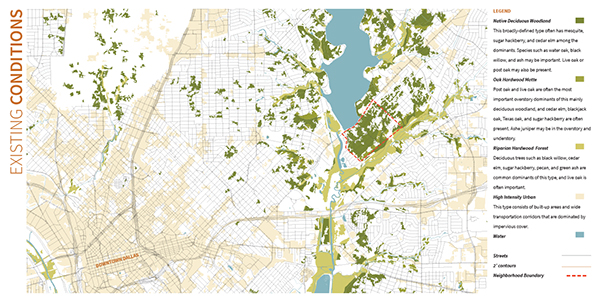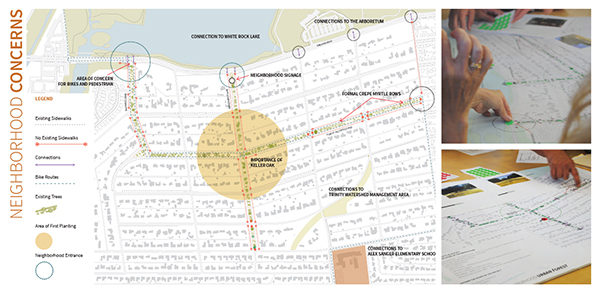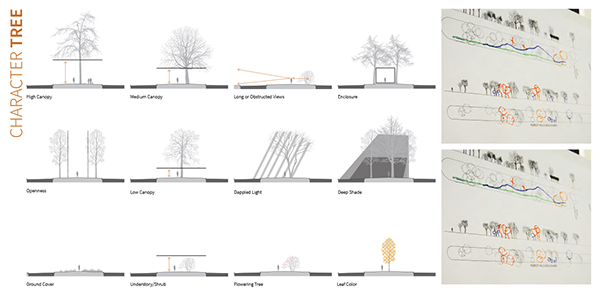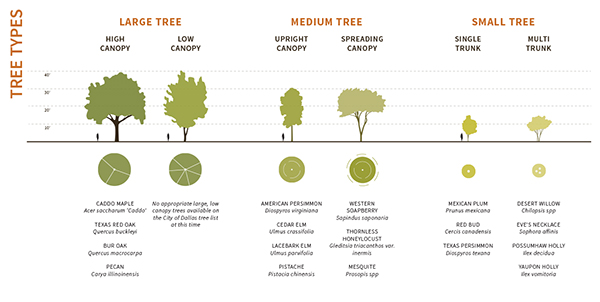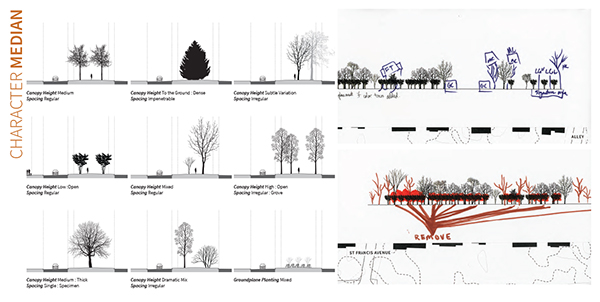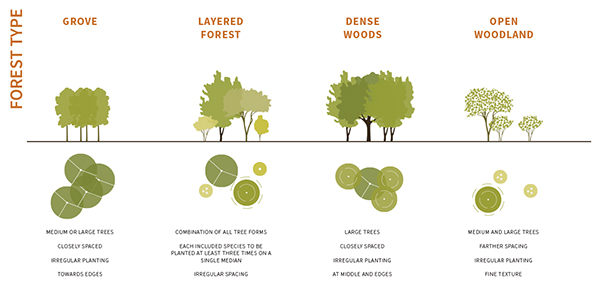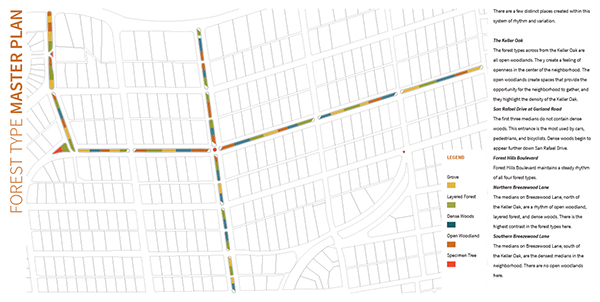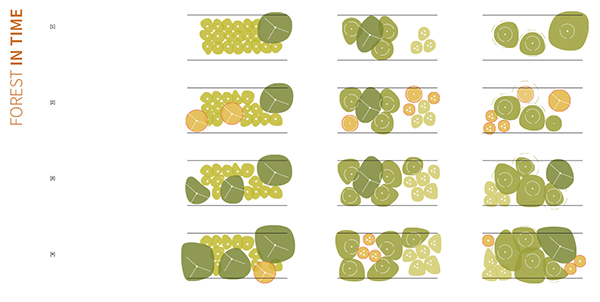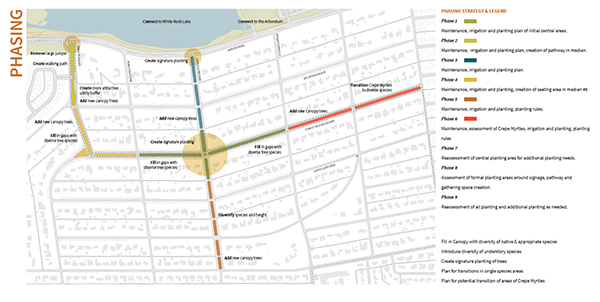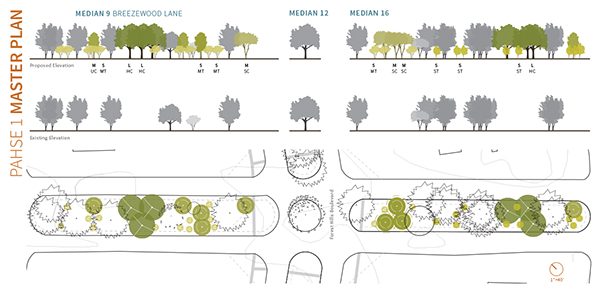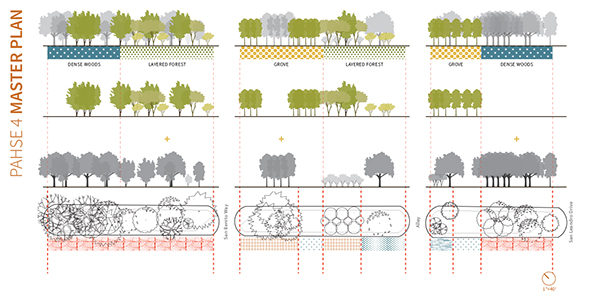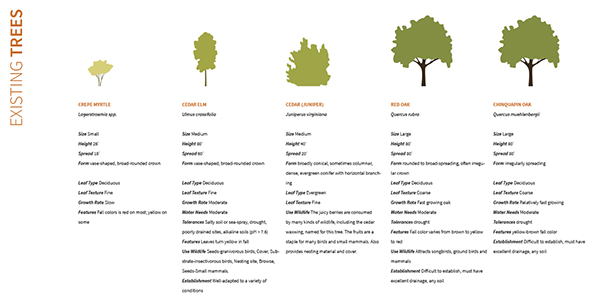The following project description was written by the Design Partners for this project - Gwendolyn McGinn & Isaac Cohen:
"The Forest Hills neighborhood is distinct from others in Dallas because of it’s dense tree canopy. But the urban forest is in decline as the trees that form it’s canopy are nearing the end of their lives; many of the oaks, cedar elms, and pecans that form the canopy were established even before the neighborhood was platted. In 2015 as a part of a Public Design Impact Initiative, the Forest Hills Neighborhood Association (FHNA) collaborated with [bc] to create a plan for their urban forest.
The medians in the central boulevards of the neighborhood total almost 7 acres, and were selected as a discrete project to begin the process. The FHNA anticipates that the reforestation of the medians and the active involvement of the community in the design process will create a sense of shared responsibility towards the neighborhood’s urban forest and will encourage further planting of trees on private properties, along parkways and in yards.
Through the Public Design Impact Initiative program, [bc] partnered FHNA with landscape designers to develop a language for the urban forest. A central element of this collaboration was creating the definition of what 'urban forest' meant to the neighborhood. By clearly defining spatial and functional characteristics of the forest, all design decisions would relate back to this statement. The process of defining the urban forest of Forest Hills consisted of collecting comments from residents on existing and desired conditions, site analysis by the landscape designers and residents, and the development of a system to express existing and proposed spatial qualities of the median forests.
The Forest Hills Neighborhood Urban Forest
Ecologically, functionally, and in character the Urban Forest will reinforce the identity of Forest Hills by creating a visually appealing and ecologically valuable public realm within the boulevard medians of the neighborhood. The process of creating the urban forest plan and implementing it will build community and strengthen connections to neighboring amenities including: White Rock Lake, White Rock Creek, and the Dallas Arboretum.
Instead of creating a traditional master plan, the Urban Forest Plan describes desired spatial qualities of the medians and provides a strategy that will assist in the implementation of the forest over time as conditions within the medians change. This focus on forest qualities was the result of a series of variables that had to be accommodated in the master plan. The FHNA had to be able to implement the plan over the course of three years, and since the City of Dallas provides trees for planting, the available and approved species at the time of planting can not be predicted. To adapt to these conditions, a new way of discussing and planning with trees had to be created. Formal and spatial characteristics of trees and forests were utilized to create a vocabulary that neighbors could use to make choices and create plans without an attachment to specific tree species. The communication of these characteristics and their use in the creation of the urban forest plan allows for a wide degree of variation in implementation to fit spatial, budgetary, and ecological needs.
A community-engaged process for the creation of an urban forest plan is foremost about communication between a design team and neighborhood residents. The main question, how in a community-engaged design approach, do you provide the tools and information needed for a neighborhood to plan their physical environment? The creation of these tools and the communication of their use has been a key reason for the success of this urban forest master planning process.
A process of core community team meetings and large neighborhood meetings allowed for a continual dialogue during the development of the urban forest definition and the Urban Forest Plan. These meeting enabled neighbors to learn about and apply complex spatial issues; tree form, forest types, spatial sequences, and rhythms. All project participants were encouraged to communicate their design intentions throughout the design process—one key example of this is that neighbors were able to complete notational sequences, diagramming their desired changes to the boulevard medians, through tree form and characters.
Additionally, this process allowed for consistent communication between the design team, core community team, neighborhood association, and the neighborhood to answer questions of the how, what, where, why, and when so that all could participate. Questions of maintenance, the timing of new work, cost, irrigation, ecological responsibility and species diversity were all considered, as well as the ability to guide questions outside the scope of the project in an appropriate manner.
The resulting document communicates a strategy that can be utilized by community members and expanded upon by design professionals as implementation occurs. It can be used to plant trees, create spin off projects, advocate for City work, and grow support for a variety of neighborhood projects. It communicates the value of landscape architecture and design through imparting valuable knowledge in a clear and concise manner, creating the ability for this knowledge and thought process to be expanded beyond this one project."
![[bc]](http://images.squarespace-cdn.com/content/v1/5248ebd5e4b0240948a6ceff/1412268209242-TTW0GOFNZPDW9PV7QFXD/bcW_square+big.jpg?format=1000w)


